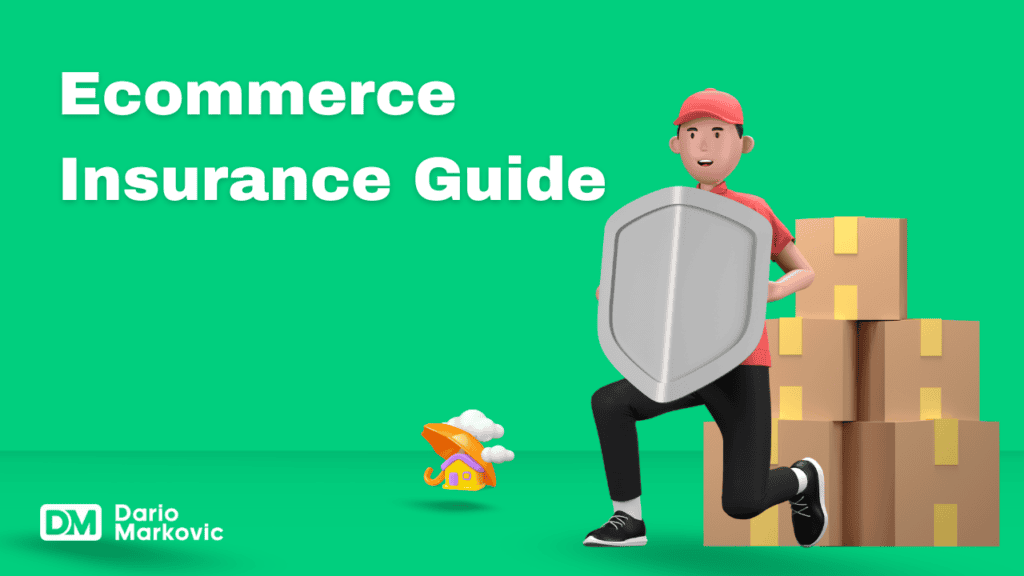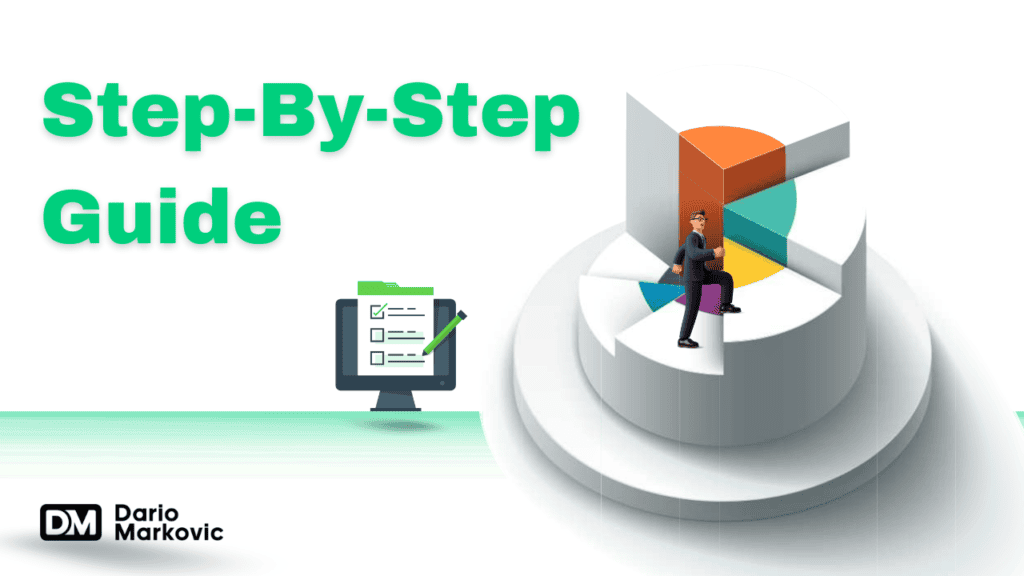Running an online business is exciting. But along with building your brand and attracting customers, you need to think about risks. That’s where ecommerce insurance comes in. It might seem complicated initially, but it’s about getting the right protection to focus on growing your business.
Ecommerce insurance covers unexpected issues – from a customer claiming your product injured them to a data breach that compromises sensitive customer data. These risks are a real threat in the digital world.

You might think smaller ecommerce businesses are less likely to need insurance. However, small businesses are often more susceptible to these risks. Understanding your vulnerabilities, the types of business insurance, and getting the coverage you need, regardless of your size or brand establishment, is important.
Why Ecommerce Insurance is Essential for Businesses Like Yours
Ecommerce is growing fast, and the projected numbers are astounding. Studies reveal that retail ecommerce sales will hit $4.058 trillion USD in 2020, accounting for over 14% of global spending. With these impressive figures, the ecommerce space is a prime target for cybercriminals.
A significant 32.4% of all cyberattacks now target the ecommerce industry. This issue doesn’t just affect large corporations – even small online retailers on platforms like Amazon need to prioritize coverage. As of 2021, Amazon mandates that retailers selling more than \$10,000 worth of monthly inventory must carry liability insurance for their online store.
Cyberattacks aren’t the only thing to worry about. Consider product liability insurance, which covers you if a customer gets injured using a product you sell. It also covers legal costs and settlements in lawsuits. Then, there’s business property coverage, which is important in case your inventory is damaged by fire or theft. This insurance helps to financially protect your business in these situations.
What Types of Risks Does Ecommerce Insurance Typically Cover?
Every business has unique risks. Ecommerce insurance policies generally have core coverage areas and then let you customize with additional options for your needs.
1. General Liability Insurance
Many people consider general liability insurance the foundation of business insurance. It protects you if someone claims they were hurt at your business or because of something your business did.
| Risk | Explanation |
|---|---|
| Customer Injury | Someone trips and falls at your office or warehouse and sues you. |
| Property Damage | Your business operations, like a storage unit, accidentally damage a third party’s property. |
| Advertising Mistakes | Your online marketing campaign is found to contain false advertising, leading to a lawsuit. |
General liability insurance covers you if you’re sued for libel, slander, copyright infringement, or reputational harm.
Legal costs alone could damage a small business even if the lawsuit is unfounded. Don’t make the mistake of thinking it can’t happen to you.
NEXT Insurance customers, for instance, typically pay $25 to $75 monthly for this protection. You’ll want to speak with an insurance professional to determine whether general liability coverage suits you.
2. Product Liability Coverage
When selling products online, there’s always a risk that a product could injure someone, even if designed and manufactured with good intentions. This specialized area of liability coverage focuses on injuries or damages from the products you sell. Insureon estimates this coverage typically averages around $42 per month.
No matter how diligent you are, defects can always slip through. Maybe a product works perfectly, but the instructions aren’t clear enough, and a customer uses it incorrectly and gets hurt. Product liability insurance can provide financial protection for these types of situations.
3. Cybersecurity and Data Breach Insurance
Data is valuable, and in ecommerce, you handle a ton of it. It’s more than customer names and addresses– payment information, browsing history, purchase history, and more.
Cybersecurity insurance offers protection in these scenarios:
-
- Data Breaches: A hacker gains access to your customer database. Cyber insurance helps to cover costs related to investigating the breach, notifying customers, providing credit monitoring, legal fees, and even regulatory fines.
-
- Ransomware: Cybercriminals hold your website or data hostage, demanding a ransom. Coverage might include paying the ransom (if deemed the best course of action) and restoring systems.
-
- Business Interruption: If your ecommerce website is down because of a cyberattack, you’re losing money every minute. This type of coverage helps to replace lost revenue.
Experts predict global cybercrime will cost $10.5 trillion USD annually by 2025. Small businesses aren’t immune; they are often more vulnerable to these attacks. That’s why having cyber liability insurance, in particular, is so important for ecommerce businesses of all sizes.
4. Commercial Property Coverage
Don’t think you need this because you’re an online-only business? Think again. Even if you don’t have a retail storefront, you likely have a physical location where you store inventory, equipment, or records. Studies suggest that around 40% of small businesses will experience property loss within a decade, emphasizing the importance of this coverage. Commercial property insurance protects these assets if damaged by fire, theft, vandalism, or certain natural disasters.
5. Other Essential Types of Ecommerce Insurance
You may need additional insurance coverage depending on your business. This is a great opportunity to consider common types of commercial insurance to determine which options make the most sense for you.
Commercial Auto Insurance
Do you or your employees drive company vehicles for deliveries, pickups, or other business-related reasons? Personal auto insurance usually doesn’t cut it, so a dedicated commercial policy is necessary. If you are found liable for an accident in your vehicle, your auto policy likely won’t cover the claim if the vehicle was being used for business purposes. Commercial auto insurance is important when considering that 40% of small businesses are likely to face property or liability loss within 10 years.
Workers’ Compensation Insurance
In most states, workers’ compensation insurance is non-negotiable if you have employees, even if they’re part-time. Workers’ compensation insurance offers medical benefits and lost wages to employees injured on the job. Without it, your business could be in serious legal trouble, and you could even face fines or other penalties.
Business Interruption Insurance
This insurance can be bundled with commercial property insurance or a stand-alone policy. Business interruption insurance helps replace lost income if something unexpected forces you to halt business operations. Business interruption coverage would even cover loan payments if your business cannot temporarily make them.
How To Get Business Insurance
Acquiring business insurance is crucial in safeguarding your venture against various risks. Here’s a streamlined guide to help you through the process:

Step 1: Identify Your Insurance Needs
Determine the specific risks associated with your business. Common types of business insurance include general liability, property, and workers’ compensation. Your industry, location, and business size will influence the types of insurance you need.
Step 2: Choose a Reputable Insurance Provider
Research and compare insurance providers. Look for companies with good customer reviews, strong financial ratings, and experience in your industry. You can also seek recommendations from business peers or industry associations.
Step 3: Get Multiple Quotes
Request quotes from several insurers to compare coverage options and premiums. Ensure the quotes are based on the same coverage limits and deductibles for an accurate comparison.
Step 4: Assess Coverage and Policy Details
Review the coverage options, policy exclusions, and limits carefully. Make sure the policy covers your business’s most significant risks. Clarify any doubts with the insurance provider.
Step 5: Consult with an Insurance Broker
An insurance broker can provide expert advice and help you navigate the complexities of business insurance. They can assist you in finding the best policies and negotiating better terms.
Step 6: Purchase the Policy
Once you’ve selected the best insurance option, finalize the purchase. Ensure you understand the payment terms, coverage start date, and policy duration. Keep all documentation organized and easily accessible.
Step 7: Review and Update Regularly
Regularly review your insurance coverage to ensure it remains adequate as your business grows or changes. Update your policy to reflect new assets, employees, or risks.
FAQs about ecommerce insurance
What insurance do I need for ecommerce?
Essential coverage for most ecommerce businesses includes general liability insurance, product liability insurance, cybersecurity insurance, and commercial property insurance if you have a physical location.
What is e-insurance in ecommerce?
E-insurance, specific to e-commerce, typically refers to various insurance policies tailored to cover the risks associated with online businesses.
What is the best insurance for online business?
Your online business’s “best” insurance depends entirely on your needs. Think about your specific operations and potential vulnerabilities.
Do you need insurance for Shopify?
While Shopify itself may offer some basic liability coverage, you’ll still likely need separate ecommerce insurance, especially for data breaches, product liability, or commercial property if you have a warehouse.
Dario’s Conclusive Thoughts
Ecommerce insurance is crucial for online businesses navigating the digital marketplace’s complexities. By mitigating potential risks, businesses can operate confidently and focus on what they do best: providing exceptional products and services to customers online. Finding the right ecommerce insurance is about safeguarding the business you’ve worked hard to build.



